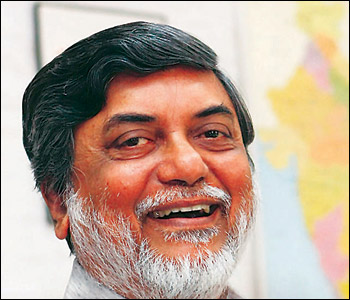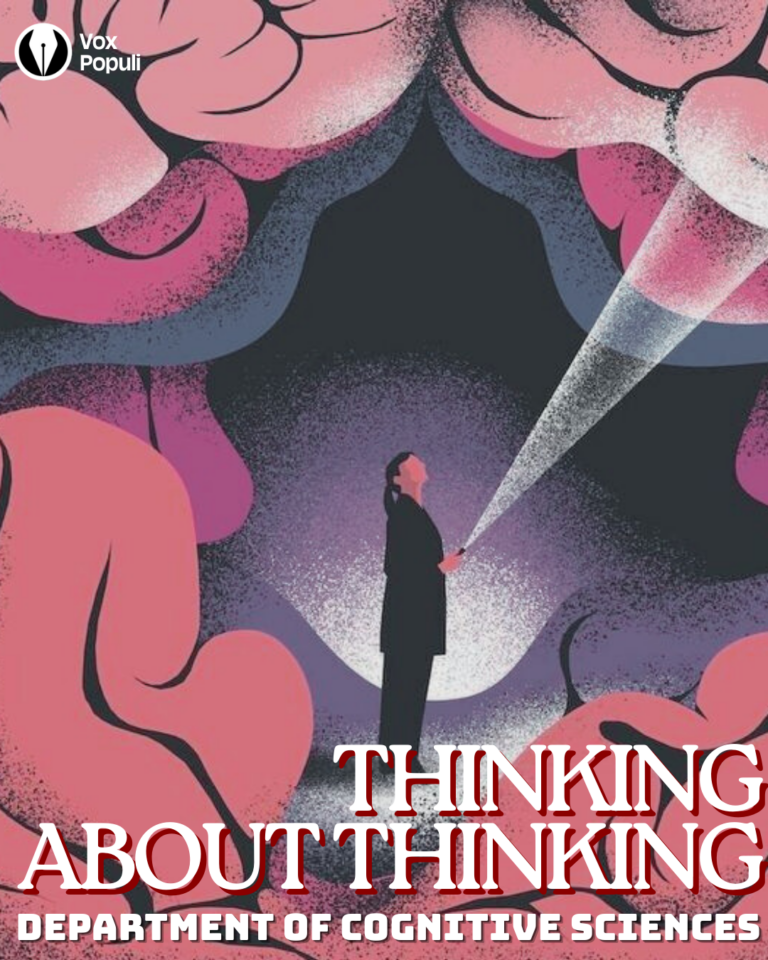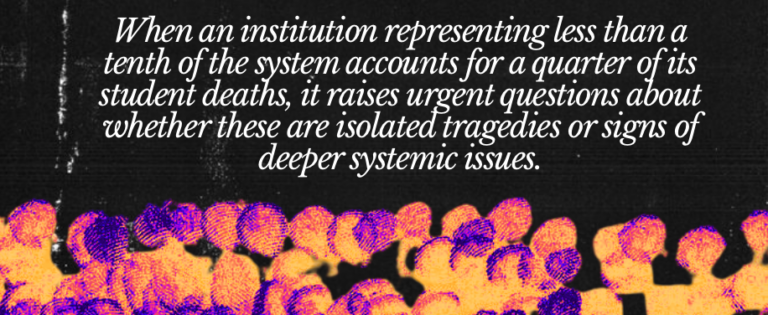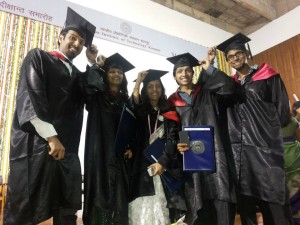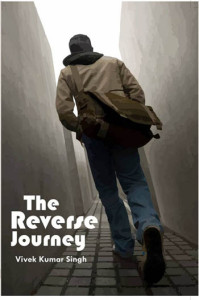My father called me an idiot when I refused to apply for the Green Card. After M. Tech. from IITK, I went to USA for Ph.D. only to return to India to fulfill my dream of developing technologies for rural applications. In the process, I discovered myself — Happiness is not about money, it is about making a difference, doing what you love, and making others happy!
Beginnings…
Born and raised in Lucknow, I went to ST Francis School and later completed B.Tech (ME 1972) and M.Tech (ME 1974) from IITK. I grew up in a family where politics was savored during breakfast, lunch and dinner.
My father was a well-known political figure in Uttar Pradesh (U.P.) politics. He was a regular columnist in Hindustan – an influential Hindi daily paper. His editorial articles on political matters of U.P. molded the opinion of important people in New Delhi. My father and Shri Ratan Lal Joshi, the editor of daily Hindustan, were in jail together during 1942 independence movement and were close friends. Shri Joshi was also at one time a close confidant of Mrs. Indira Gandhi. My father was also very close to Shri H. N. Bahuguna who was a popular chief minister of U.P. and a strong candidate for future prime ministership of India. I am not dropping these names to impress upon you my upbringing in a politically well-connected family and my exposure to Indian politics from childhood. You will see its relevance shortly.
Years and Experiences at IITK
In 2009, a well known film maker of Mumbai, Shri Sunil Shanbag made video interviewing IIT Kanpur Alumni & former Faculty about their experiences of IITK.
The one hour film was released in July 2009 at IIT Kanpur to commemorate its Golden Jubilee celebration and it is a very good watch happenings at IITK during that time. The youtube link for my interview (20 mins) is at http://www.youtube.com/watch?v=EK7ZDSRAXYg
Trip to USA
After B.Tech, I got a couple of job offers through placement office; however the desire to go to US was strong. I got admission in several universities but no financial aid. I took admission in M.Tech at IITK and decided to apply for PhD later. During M.Tech, I got interested in solar energy. I was lucky to get Government of India Scholarship for Studies Abroad so I did not have to depend on financial aid from US universities. I chose, University of Florida for PhD in mechanical engineering with specialization in solar energy. When the Air India flight took off at midnight on December 29, 1974, I cried. It was a strange experience for me since I always considered myself to be a strong person but a tremendous love for India– the motherland erupted within me. I vowed that I was going to US to learn about technologies that I could come back and use for India’s benefit. I am amazed even today about how that feeling came but it did come with a tremendous force. There was sadness in leaving my family behind but this overwhelming emotion for India was amazing.
When I landed in University of Florida (UF), I did not know a soul. Fortunately, soon I ran into my batch mate Udai Pratap Singh, who I did not know very well in IITK. He was extremely helpful and offered to have me stay with him till I found my own place and agreed to lend me money till I got my scholarship! As I settled, I started taking all sorts of classes that interested me. I did well in my courses. I was not a genius but a hard worker all my life. The hard work paid off. In one of the courses, the professor gave me 150 marks out of 100 due to my extra effort in solving a problem. I took advantage of the opportunity to attend guest lectures of visiting scholars and engaged with them in discussions. I wanted to soak in as much knowledge as possible. I enjoyed my studies and I also enjoyed the quality of life which was so different at that time from that in India.
During my stay at UF, l was lucky to be able to attend a speech by the then candidate for US Presidency Jimmy Carter and meet with the father of US space program Dr. Wernher Von Braun, distinguished professors of mathematics Dr. Ulam and Dr. Popov, and Nobel Laureate in Chemistry Dr. Eigen. I used to attend their lectures and also invited them in graduate seminars that I used to organize.
It was a great experience learning, listening, and just being in the presence of scholars of such high caliber. I thoroughly enjoyed the rich intellectual life that UF offered.
In collaboration with my IITK classmate Udai Pratap Singh we also launched Indian Students’ Association – organized movie screenings, picnics, and newsletter.
During my PhD, I met Nandini – a graduate student in the department of Agronomy. Nandini was smart, tall, opinionated, determined, and came from a very distinguished Maharashtrian family. What attracted me most to Nandini, besides many other things was our common desire to return to India after studies. Though Nandini was born in Tucson, Arizona, and was a US citizen by birth, she, however, grew up in India and had renounced her US citizenship. We developed liking for each other and in spite of a difference of 4” in height (Nandini is 4” taller than me!) we decided to get married in 1976. Both sets of parents accepted our decision. We got married in Florida – unfortunately neither of our parents could attend the wedding.
After my PhD, I stayed back for about 2 ½ years to teach at UF. This was my opportunity to obtain Green Card but I was against getting it because once I had it, it would have been difficult to go back to India. The university administration was very surprised by my decision and my father called me an idiot.
Normally people were ready to give an arm and a leg to get a Green Card and here I was refusing to apply. We also decided that we will not have children in US even though that meant denying them an opportunity to become US citizens by birth. We desperately wanted to return to India. But then I have always been a foolish and arrogant person!
Why did I return to India?
It has been little more than 30 years since I came back from US. In late 1981 when I returned, few Indians with an IIT background used to come back. Even the ones who did come back went to big cities like Bombay, Delhi, Bangalore etc.
Instead of accepting job offers from IIT Bombay, Tata Energy Research Institute, BHEL, or join Piloo Mody’s Swatantra Party, I chose to work for rural development and went straight to rural Maharashtra to join hands with Nimbkar Agricultural Research Institute (NARI) founded by my in-laws in Phaltan in 1968. Phaltan was as alien to me as any foreign country since I hardly knew the local language or the milieu; I had mostly spent my life in cities in Northern India. Had I gone crazy? Was I following the Sanskrit adage, Vinash Kale Vipareeta Buddhi – before a person’s downfall, his intelligence and ability to make good decisions fail? I was hung up on doing something useful with my life. Was that such a bad decision?
I came back to India because of my arrogance. I thought, with my father’s political and other connections and with the help of scientists like Dr. Atma Ram I would be able to get involved in the energy and technology scene at the National level. Also the inflated notion about my own ability made me believe that I could help change India. How wrong I was! Instead of me changing India, India changed me. I consider my coming back as the detoxification of Anil Rajvanshi! In fact I thank the higher forces for making me think irrationally so that I left everything to come to rural Maharashtra!
I chose Phaltan because this was the only place I knew at that time where I could do something on my own. Thank God for giving me a place, no matter how small, where I could think deeply on issues of rural development, renewable energy and spirituality, reflect on them and write about them. At the same time remaining connected to the outside world via the Internet allowed me to share my thoughts with like-minded people on a much bigger scale.
My decision of coming back to rural Maharashtra was never dictated by altruistic desire of helping India but was due to the selfish reason of doing something meaningful in my life. The challenge of using technology for rural development was tremendous. However, at that time with the knowledge and wisdom that I had, I never planned for long-term goals. I just crossed the bridges as they came. In fact I have never done any long-term planning and have accepted events as they come.
It was not smooth sailing
Initially, there were many struggles. Very soon after coming back the ground realities hit me and all my romantic notions and arrogance vanished. Those days Phaltan was a very difficult place to live and work in. I and Nandini lived for 2 years in slums of Phaltan in a small rented house. We moved into our present house that I designed in early 1984. It is a comfortable house and has a passive cooling system which is very useful for Phaltan climate. Both of us used to daily bicycle to the Institute – a distance of about 3 kms one way. In 1984 my brother who was going to Saudi Arabia as an orthopedic surgeon took pity on me and gave me his old scooter which he had got in 1975 from Chief Minister’s quota. That was our first motorized vehicle.
Just 6 months after coming back to India, with reality and frustration setting in, I decided to return to USA. So Nandini started packing our household goods. After half an hour of packing I suddenly realized that if I also go back to US then I would become another data point among the millions of Indians who are in US. I asked myself “why am I quitting now when I was so proud of taking a different path?” This was the last time I ever gave a thought to quitting. Though I had to suffer through many trials and tribulations later on, the thought of leaving Phaltan never crossed my mind again.
In those days for purchasing even small things one had to go to Pune – a town 100 kms away. When I came to Phaltan there was a flat piece of land where I was supposed to start building my energy lab. The Institute had a small building with almost no other infrastructure. I got an old fan fitted in my office and that was the only fan in the whole Institute. Besides one rarely had electricity so the fan was mostly non-functional! In the early days of setting up my lab, it was very difficult to get engineers and scientists. It took me nearly 4 years to get the lab to become functional and hire decent staff. Even now there is a tremendous problem in getting good staff. The situation has become worse because we cannot compete with the very high pay packets being offered by the industry. The biggest drawback in setting up an Institute in a rural area is getting good people to come and work. The rural infrastructure precludes any long-term commitment by people to work in such institutes. This has been the main reason why NARI has remained a small Institute.
Was it worth it?
Am I happy? Did I accomplish what I planned to? Did I make a difference in someone’s life? Are people better off as a result of my work? The answers to these questions, is resounding YES!
Even with a small staff and infrastructure at NARI we have been able to do commendable work with lots of firsts to our name. Our Institute is well-known nationally and internationally. Our work at NARI has mostly focused on developing devices and policies for rural development with special emphasis on the use of high technology for holistic and sustainable India. It has been an exhilarating experience when some of these technologies and ideas have been picked up nationally and internationally. A glimpse of our work can be seen on our website http://www.nariphaltan.org/ which is extensively accessed worldwide. For our efforts in rural development we have also received quite a few prestigious national and international awards. Examples of what we have done include:
- Lanstove: Our invention of Lanstove http://www.nariphaltan.org/lanstove.pdf , a lantern-cum-stove that cooks while serving as a lantern promises light in homes that have been in the dark for more than 60 years since India became an independent nation. The innovation received the Globe Forum Award in Sweden. The ethanol-based lanstoves (now converted to kerosene-based) have been very well received by the users. We have also developed improved multi-fuel lamp Noorie.
- Biomass Gasifier: Our patented biomass gasifier utilizes loose agricultural waste including bagasse from sugarcane factories in and around Phaltan as well as dried sugarcane leaves. Earlier most of this waste was burnt in the fields causing air pollution. Our gasifier converts this waste into heat which can be used by rural businesses.
- Improved Rickshaws: The motorized ELECSHA runs for about 60 km with a single battery charge. We have also developed Improved Pedal Rickshaw (IMPRA), Motor- Assisted Pedal Rickshaw (MAPRA) and Motor- Assisted NARI Handicapped Rickshaw (MANHARA) and an electric trike- also for the handicapped.
- Other initiatives include: Solar detoxification of distillery waste, production of syrup and ethanol from sweet sorghum juice, improved breeds of sheep, improved varieties of safflower for seeds and petals. Our work on Taluka energy self-sufficiency became a national policy.
Could I have done more? Certainly. However, I believe that all these pioneering efforts have not only improved lives of people around us ,they also have inspired people all over the world. This has given me a great satisfaction. Working at NARI has also given me time to write. You can see my blog on Speaking Tree athttp://www.speakingtree.in/anilkrajvanshi/blog
I invite you to join me in living a simple but meaningful life
I came back with tremendous idealism to see a change in India for the better, to see the rural areas become progressive and the general level of living of majority of people to improve. In 30 years I have seen the tremendous rise of middle class in cities, the wealthy becoming ultra-wealthy and the corruption increasing manifold. With a large number of shopping malls full of consumer goods and an improvement in their so-called “standard of living” the upward bound middle class in cities gets a feeling that India has arrived. Yet 60% of our rural population lives without electricity and without the basic amenities of life. India is a young society with 54% of its population being below 25 years’ of age. The aspirations of this young generation, majority of whose members live in rural India are not being fulfilled. It is these people who are the future of India and yet it is sad to see that there is no national debate or seriousness of purpose on how to improve their lot.
Educated and smart youngsters, who can play a very important role in rural development, are not interested as they define success in terms of a big car, a big house and a huge salary. They need to stop thinking on these lines. Sometimes I also feel that there is a shortage of good role models for these youngsters for developing their minds and reshaping their thinking.
If you are looking for a challenging career, problems of our rural population offer the greatest challenge for any engineer or technologist. I feel that simple as well as high-tech solutions are available to solve these problems; only if we are willing to solve them and willing to endure initial hardships. If we can improve the lives of our rural population then we would have solved the problems of 1/5th of mankind! I challenge youngsters to come forward by giving up corporate cubicles for fresh air of open fields to solve the problems of the masses.
I have no regrets about coming back to India and especially to Phaltan, because I cannot imagine having done the things that I have done here anywhere else – more so in the US. Besides, living in rural Indian setting teaches you many things.
For a starter it makes you spiritual! With hardly any avenues to spend money on and availability of very few amenities, one starts living a simple life which is the first step towards spirituality. Initially one does not like it but with time one starts to enjoy the benefits of simplified life.
One can live a simple, high thinking and emotionally satisfying life in much less energy. This does not mean that we should live a primitive life. What is needed is to curb our consumptive lifestyle which promotes greed for resources.
I, therefore, feel very lucky to have come to rural India so that I could develop this feeling of simplicity in my daily life and now I feel that it is my duty and responsibility to spread the message. I invite you to join me in living a simple but meaningful life. I have always believed that the purpose of human beings is to first become happy and self-contented and then give something back to the society. Coming back to rural India has helped me to do both.
As I have become internally more secure, the level of contentment has also increased. I also feel that through our work we have been able to give back something to the society.
Nevertheless in these matters one should try to follow one’s inner voice. If the parameters of success are to be dictated by others then one cannot claim to be internally secure and content. The measures of success and failure should be honestly evaluated by oneself.
To a lot of people, I may have been a failure when after so much promise in US I left everything to come back to rural India, but I use the measure of my contentment and find that I have not done that badly!
=====================================
Dr. Anil Rajvanshi graduated from IIT Kanpur with B.Tech. and M. Tech in Mechanical Engineering (1972 and 1974) and PhD from University of Florida in 1978. A very good and complementary interview of his IITK days is available on Youtubehttp://www.youtube.com/watch?v=EK7ZDSRAXYg. He is the Director of Nimbkar Agricultural Research Institute http://www.nariphaltan.org/, Phaltan, Maharashtra. Dr. Rajvanshi does research and development work in rural technologies, and writes and educates extensively all over the world on issues of technology and sustainable development. He is also interested in spirituality and regularly writes on Speaking Tree at http://www.speakingtree.in/anilkrajvanshi/blog. We encourage you to communicate with him by posting your comments on the blog or directly writing to him atanilrajvanshi@gmail.com . He invites you to join him in living a simple but meaningful life.




